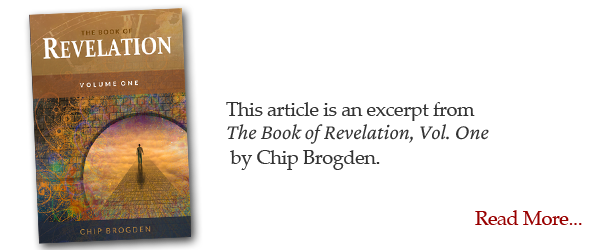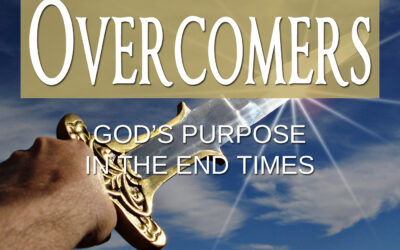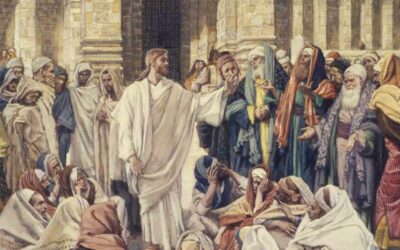We have the first letter to the first church here in the Book of Revelation. And it’s the Loveless Church. Now look at what He praises them for. He praises them for their works; their labor; their patience; not bearing evil or falsehood; they persevered; and they patiently labored. But since they didn’t have love it was a “sounding brass and a tinkling cymbal”[1] that didn’t amount to a hill of beans – because the same thing could be said for any of a number of modern day churches or ministries that are doing good, seem to be on fire for the Lord, and they’re just doing all this good stuff in His name. And He praised them for those things.
Nevertheless, Jesus prioritizes relationship over religion. What is religion? When you’re going through the motions of doing things for God when you’ve forgotten Who you’re supposed to be in love with. It’s when you take the “work of the Lord” and make it more important than the Lord of the Work. And it didn’t make any difference all the things that they did. All of those things were works. Works are important, but He says you’ve got to go back and do the first works. What are the first works? The first work is: You’ve got to go back and love Me like you did in the beginning! You’re working hard, laboring; you’re patient; you’re persevering; you’re laboring… but for what? Not for Me! It’s for you! You’re more in love with the “work of the Lord” than you are with the Lord of the Work.
And so, here’s the thing. Jesus says, “I want you to repent, and I want you to remember where you have fallen from, and go back and do the first works. Those are the works I’m interested in, when you loved Me more than anything else. When you minister to Me. When you worship Me. When you spent the day living and breathing in My presence. When I was the most important thing. When I had the preeminence in your life.” And all the working and laboring in His name – and even doing all the good things in His name – cannot make up for a lack of loving the Lord Himself.
Some people just love church. They love religion. They love the Bible. They love talking about the things of God. They love God’s people. They love fellowship. But very suddenly (and very deceptively) religion begins to take the place of relationship. And Jesus says, “If you don’t repent, here’s what’s going to happen: I’m going to take your candlestick away.” Maybe the works will continue. Maybe you’ll build a church, or build a bigger parking lot, but you won’t have any light.
First Love is a very strong relationship-oriented word. All of the other things that He praised them for were religious words – works, and labor, and patience, and you can’t bear people that are evil. I mean they sound like very fundamentalist, denominational people. I realize this was almost 2,000 years ago – but people have not changed that much in 2,000 years, and they’re still motivated by the same things then that they are motivated by now, even though today we are more sophisticated and more refined, so to speak, in our motivations. But that same spirit of religion is desiring to lead us away from the simplicity of Christ.[2] And? Mission accomplished! That’s exactly what happened with the church in Ephesus.
“Remember from where you have fallen.” This was a backslidden church that was doing all the right things. And we’ll see over and over again: Jesus confronts His people with very strong relationship language. Relationship language. Now, you can try to approach Jesus on a religious level if you want to; but He is going to turn it back around to a relationship – and if you don’t go with Him there, He takes the candlestick away. He removes Himself.
Love is a relationship-oriented word. It’s the strongest word in a relationship that you can use. He said, “You don’t love Me like you used to.” And that hurts Him more than if they had just given up on all of the works, and labor, and patience, and things that they were doing in His name. The truth is that no amount of working for God can make up for a lack of loving God. This is such a basic, basic relationship lesson. But just look at yourself. Look at all the people that you know, especially in your days in church; and look at how many are working, and laboring, being patient, persevering, laboring, doing good, building the church, helping people – nevertheless! And that just stops everything. “Nevertheless!” Jesus says… and it all comes to a halt. “I can get angels to do stuff for Me! I want you for a relationship!”
He becomes even more intimate in chapter 3 when He is writing to the Laodiceans. “If anyone hears My voice and opens the door, I will come into him and dine with him and he with Me.”[3] That is intimacy. That is relationship, calling out to you. And He’s making this invitation to people who already believe in Him. But He is also making a condition. Conditional promises are only “to those who overcome.” Those who are faithful and fruitful.
If you are in the same situation as the believers in Ephesus, and you’re working, and laboring, and doing good for Him in the name of “church,” in the name of “ministry,” in the name of whatever it is you think you’re doing and building for God, but if you are guilty of having left your First Love, you have a choice. You can keep on the way you’re going; or you can repent, remember from where you have fallen, and do those first works again.
But here’s the consequence. If you keep on the way you’re going – in the direction of religion instead of relationship – God will take your lampstand away. He will take your light away. And you will miss out on the benefits of the Overcomers. These messages, these Scriptures to us, are not just happy little reminders of how we should really live, little words of encouragement to get us on the right track. These are WARNINGS in the strongest possible language: the language of Love.
For Love’s sake. For His sake. Remember from where you have fallen. Repent, and go back, and do those first works, when you loved Him in the beginning. And if there was no beginning for you that started out like that, then make a fresh beginning right now. “He who has an ear, let him hear what the spirit says to the ekklesias,” to the churches, to God’s people, is what He says. He’s not telling sinners to go back to their First Love; they’ve never experienced a First Love. He’s telling people who are supposed to know Him and love Him to go back and know Him and love Him the way they did in the beginning. I hope that’s very clear.
[1] 1 Cor. 13:1.
[2] 2 Cor. 11:3.
[3] Rev. 3:20.













